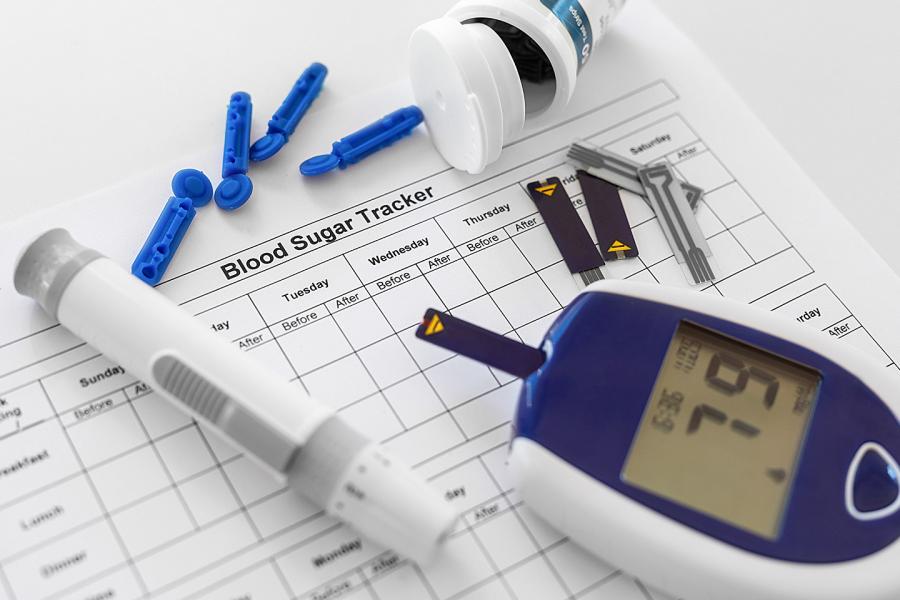This content is provided to Johns Hopkins employees through a partnership with CareFirst BlueCross BlueShield.
Every November, National Diabetes Awareness Month helps to sound the alarm on the diabetes epidemic. In the United States, more than 37 million people have diabetes, and one in five of them does not even know they have it. Additionally, 96 million U.S. adults have prediabetes, and eight in 10 of them don't know they have it. These numbers illustrate the critical need to increase support and spread awareness of this chronic disease. Here's what you should know.
Prediabetes
- Prediabetes is a serious health condition where blood sugar levels are higher than normal but not high enough to be diagnosed as type 2 diabetes.
- Prediabetes increases the risk of developing type 2 diabetes, heart disease, and stroke.
- Prediabetes is caused by the cells in your body not responding normally to insulin (the pancreas makes more insulin than needed, causing blood sugar to rise).
- Risk factors include being overweight, being age 45 or older, having a parent or sibling with type 2 diabetes, being physically active fewer than three times a week, and having gestational diabetes (or giving birth to a baby weighing more than nine pounds). Race/ethnicity also plays a factor in increased risk.
- Could you have prediabetes? Click here to take the Centers for Disease Control and Prevention's risk test.
Diabetes
Diabetes is a chronic condition that affects how your body turns food into energy. The three main forms are type 1, type 2, and gestational.
Type 1: An autoimmune condition that occurs when the immune system attacks and destroys the cells in the pancreas that make insulin.
- Type 2: The most common form of diabetes. It is diagnosed when your body does not use insulin properly and cannot regulate blood sugar levels.
- Gestational: Insulin resistance that occurs during pregnancy. It is important to get tested for gestational diabetes to protect both your health and that of the baby.
- Click here to view the CDC's list of diabetes risk factors for each form of diabetes.
Mind and body care
Diabetes takes a toll on more than just your body. It's normal to feel overwhelmed at times when managing diabetes, which is why it is important to ask for help. While there's no cure for the condition, with lifestyle changes and treatment you can live a long, healthy life.
- Maintaining your mental and emotional health is critical for managing diabetes. Feeling good about yourself allows you to properly take care of yourself. Managing diabetes can be stressful at times. Be sure to stay in touch with your emotions and honor what you are feeling. Reach out to your support system to talk openly and honestly about how you feel.
- Staying active is important for not only diabetes prevention but also management if you are diagnosed. Physical activity helps control blood sugar levels and lowers your risk of heart disease. The goal is to get at least 150 minutes per week of moderate-intensity physical activity.
- Eating healthy foods in the right amount at the right time is key to managing blood sugar levels and helps you maintain a healthy weight.
Johns Hopkins resources to support you in preventing and managing diabetes
CareFirst One-on-One Health Coaching. CareFirst members diagnosed with diabetes are encouraged to receive additional support to help improve their overall well-being by enrolling in disease management coaching at 877-260-3253 (press option 7).
EHP. EHP offers many free, interactive health education programs and workshops to help members learn more about the factors that most affect their health. Join the upcoming webinars Pre-Diabetes & Me, Managing Diabetes, and Diabetes a Healthier You by registering on the EHP Health & Wellness website. Also, learn more about EHP's Care Management Program, which helps members manage their diabetes.
WW personalized diabetes support. Johns Hopkins wellness partner WeightWatchers has the support and tools you need to make managing your diabetes easier, while still living life to the fullest. Click here to learn about the WeightWatchers Diabetes-Tailored Plan. If you choose to use WW to support you in your wellness journey, visit ww.com/johnshopkinsuniversity to get 50% off membership through JHU.
Burnalong: Managing Diabetes With a Healthy Mind and Healthy Body program. Burnalong has curated a group of classes from its top instructors to support you in managing diabetes. Access the program here and set up a schedule to view the on-demand classes. You need to have an active Burnalong account to view this program; membership is free for JHU employees.
Posted in Health+Well-Being
Tagged hr newswire








